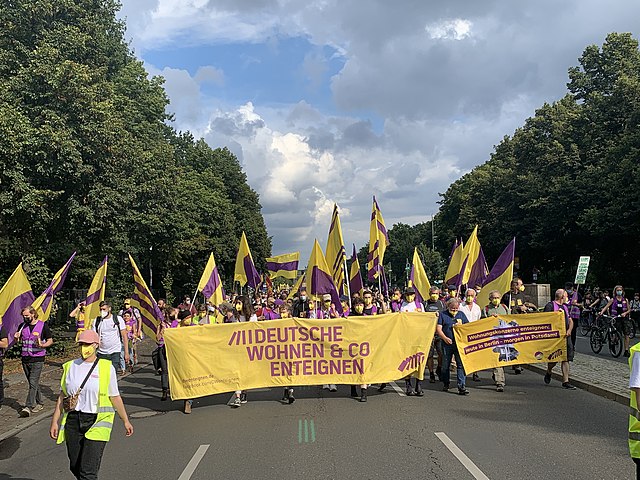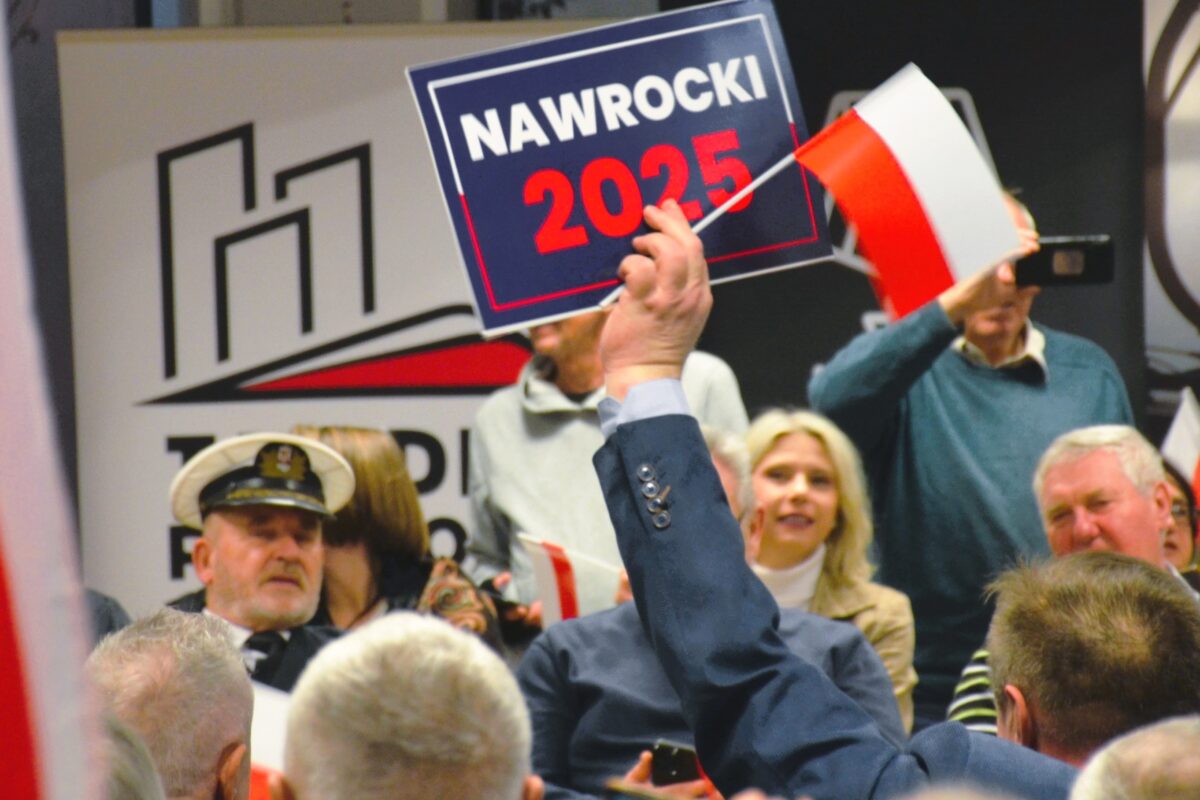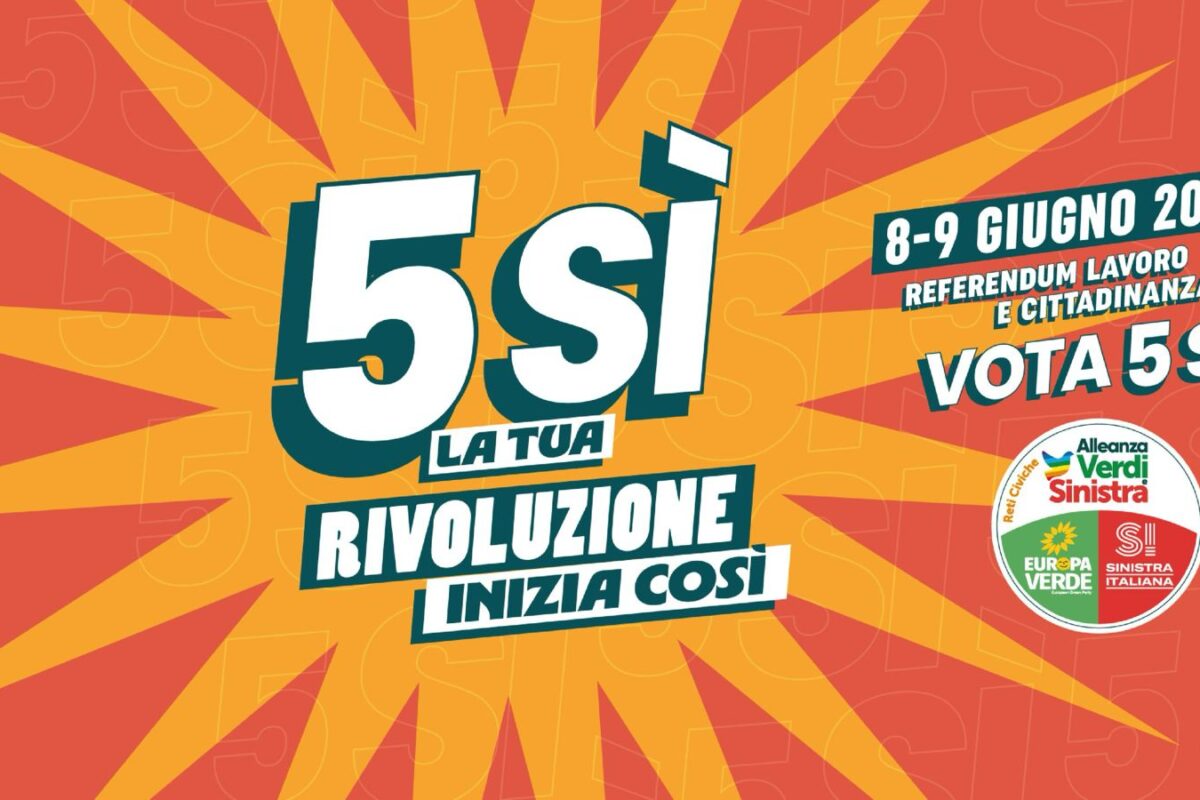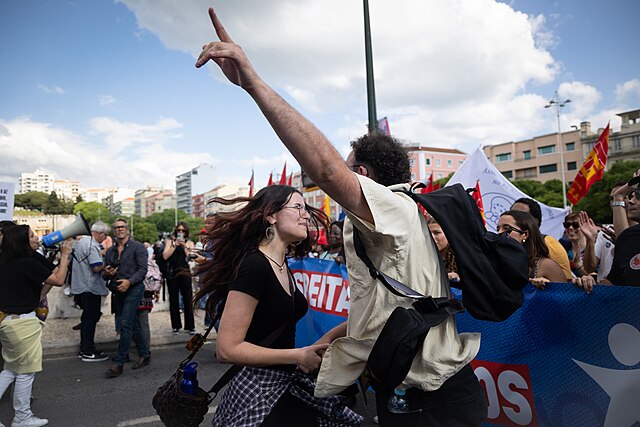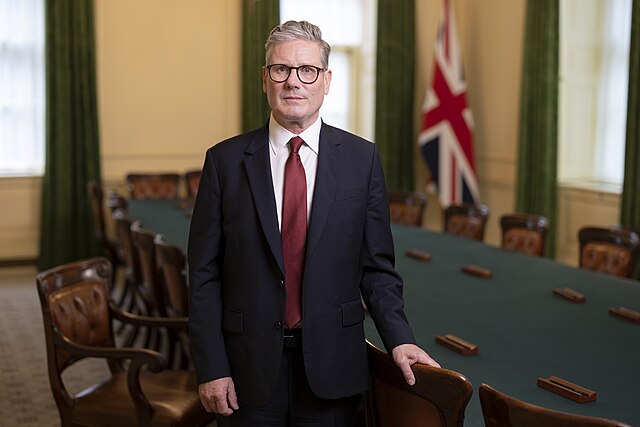One week after Berlin’s Constitutional Court declared the 2021 election of the House of Representatives and the District Parliaments (Bezirksverordnetenversammlungen) invalid, a DWE comrade and I began planning an event in Wedding and Reinickendorf. Although we knew a potential re-election was looming, we had no inkling of when it would occur. We wanted to talk to more Weddingers and Reinickendorfers to find out what they thought about the expropriation and socialization of housing.
On January 6th 2023, a crowd gathered at Gesundbrunnen to kick off DWe’s campaign to recall real estate friendly politicians. Our motto?: “Immolobby abwählen”. We want to kick out all politicians unwilling to heed the call of the 1 Million Berliners to expropriate and socialize the city’s biggest landlords. On that day, we heard speeches about voting rights and local organizing.
We handed out flyers, delivered newspapers and discussed with passers-by about the progress as well frustration of the referendum and the failures of Berlin’s ruling politicians to provide affordable housing for all. Between 68% – 76% of Weddingers and 49% of Reinickendorfers (those in the South view expropriation more favorably) had voted yes to the referendum spear-headed by the DWE initiative, yet their will was being undemocratically ignored.
The ire of the campaign was (and still is) directed primarily at the city’s reigning mayor Franziska Giffey (SPD), Andreas Geisel (SPD) – Senator for City Development, Construction and Living – and Kai Wegner (CDU). They have ignored and impeded the demands of the voters at every step. A commission called by the Red-Red-Green government in March of 2021 to check the “possibility, means and requirements for the implementation of the referendum” was seen by many, especially in Wedding and Reinickendorf, as a tactic to delay implementation and beleaguer the campaign’s supporters.
The commission’s intransparency and the senate’s unwillingness to cooperate with the commission compounded frustrations. The indication of a positive result have lifted my own spirits (and those of many in the campaign), but frustration at the anti-democratic tactics of the government remain.
Giffey and Geisel’s beloved “Alliance for new construction and affordable housing“, for instance, in which no tenant’s rights groups were present, promised to build subsidized apartments and ensure rent prices didn’t continue their precipitous climb. Sadly, a few problems have arisen. None of the ‘agreements’ reached were binding. As is so often the case, politicians and business celebrate supposed social achievements, but without the pesky obligations to actually do anything.
A prominent partner in the alliance hasn’t felt particularly obliged as of late. Europe’s biggest real estate conglomerate, Vonovia, has announced a construction stop in 2023. God forbid they stop showering their investors with dividends. They’d much rather kick back and raise rents on their tenants (presumably not over the 15% allowed under the “Alliance”). Maybe, if the city offers the right inflated market price, they might even consider selling of some of their least profitable, least well-kept houses. Anything to keep the profits up and pay back climbing interest on sizeable debt.
Instead of an alliance of real estate and politicians, DWE would like to place decisions in the hands of tenants and workers. After the apartments of Berlin’s biggest landlords are expropriated, they will be managed by an “Anstalt des öffentlichen Rechts” (AöR), an institution, like ZDF, recognized by German law to administer public goods. It will create councils at neighborhood, district, and city level ensuring tenants as well as employees determine what happens with the houses in which they live. Crucially, apartment allocation under the AöR will occur through a blind lottery to compensate for racism, sexism, and general oppression experienced by many while apartment hunting.
The Green party’s top candidate for mayor, Bettina Jarasch, has herself shown an ambivalent relationship to the expropriation referendum. Before the election in 2021, expropriation was to be treated as an ultima ratio. A little over a year later and her positioned has softened. Now, she is “the only one [candidate], who seriously wants to implement the referendum.” Decisive for her new warmer disposition to the referendum will have been the large majority of Green voters, who also cast their vote for the referendum.
The constant reminders from the untiring DWE volunteers questioning her in every public venue, cemented her public avowal. Jarasch’s insistence on patience and due process gives nonetheless great pause to many in the campaign. The more supporters are left sitting on their hands, the less momentum the initiative has, which risks the goal of socialization drifting further from Berliner’s minds.
After the commission has (hopefully) delivered their go ahead, we would all like to see a bill within the next legislative session. No matter the coalition, we expect the socialization and democratization of Berlin’s housing. Until that point, we will continue showing our outrage at politicians, our love for the city and reminding everyone that a better, more just, more sustainable city is achievable. Beside the socialization of hospitals or energy production, putting 240,000 apartments into the hands of those who live in them is a necessary step towards that future.
